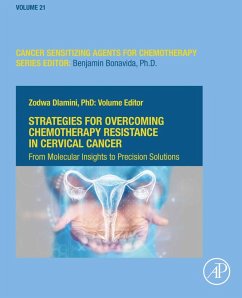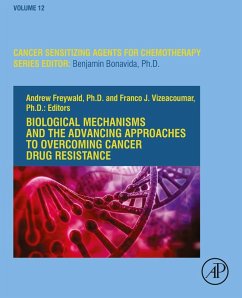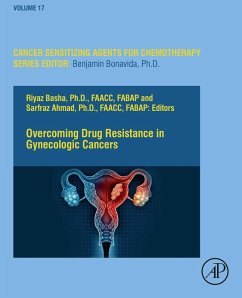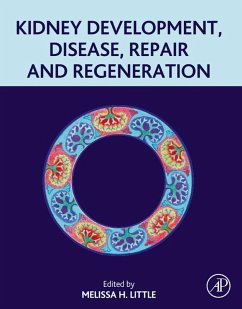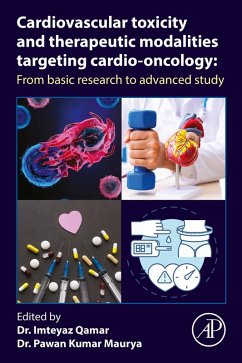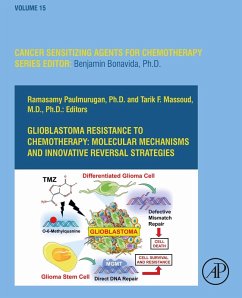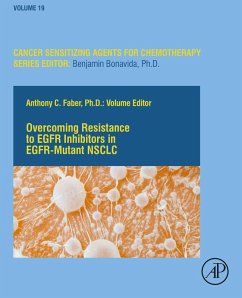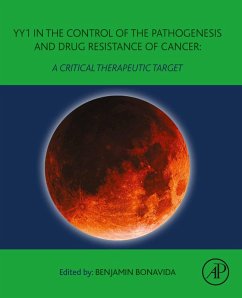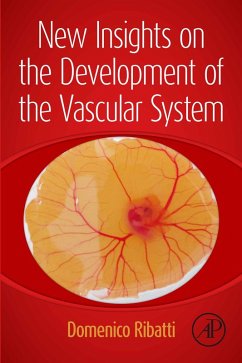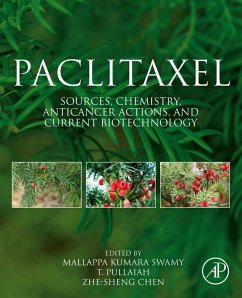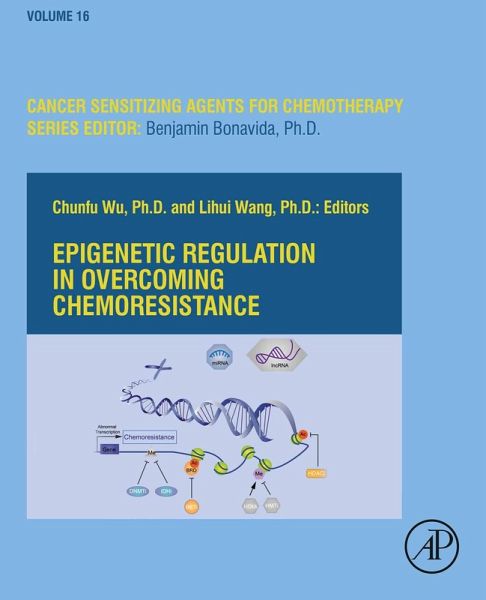
Epigenetic Regulation in Overcoming Chemoresistance (eBook, ePUB)
Versandkostenfrei!
Sofort per Download lieferbar
113,95 €
inkl. MwSt.
Weitere Ausgaben:

PAYBACK Punkte
57 °P sammeln!
Epigenetic Regulation in Overcoming Chemoresistance, Volume 19, explains how epigenetic agents can enhance the chemotherapy sensitivity of diverse types of cancers. The book provides a comprehensive delineation and the recent development of the scientific studies on the epigenetic regulation in enhancing chemo-sensitivity. In addition, it discusses several topics such as DNA methyltransferase inhibitors (DNMTi), Histone deacetylases inhibitors (HDACi), Histone lysine demethylases inhibitors (HDMi), Histone lysine methyltransferases inhibitors (HMTi) and drugs regulating the microRNA, long non-...
Epigenetic Regulation in Overcoming Chemoresistance, Volume 19, explains how epigenetic agents can enhance the chemotherapy sensitivity of diverse types of cancers. The book provides a comprehensive delineation and the recent development of the scientific studies on the epigenetic regulation in enhancing chemo-sensitivity. In addition, it discusses several topics such as DNA methyltransferase inhibitors (DNMTi), Histone deacetylases inhibitors (HDACi), Histone lysine demethylases inhibitors (HDMi), Histone lysine methyltransferases inhibitors (HMTi) and drugs regulating the microRNA, long non-coding RNA (lncRNA) or RNA methylation. Finally, recent and future developments of the field of epigenetic regulation are explored. This is a valuable resource for cancer researchers, clinicians, graduate students and several members of biomedical field who are interested in learning about epigenetic regulation methods to reverse chemo-resistance in cancers. - Presents detailed diagrams of the mechanisms of epigenetic regulation for easy consult - Encompasses multiple clinical trial summary diagrams to help readers quickly and clearly get information from clinical trials - Provides future perspectives in each section to inspire readers to use epigenetic regulation to overcome chemo-resistance
Dieser Download kann aus rechtlichen Gründen nur mit Rechnungsadresse in A, B, BG, CY, CZ, D, DK, EW, E, FIN, F, GR, HR, H, IRL, I, LT, L, LR, M, NL, PL, P, R, S, SLO, SK ausgeliefert werden.




